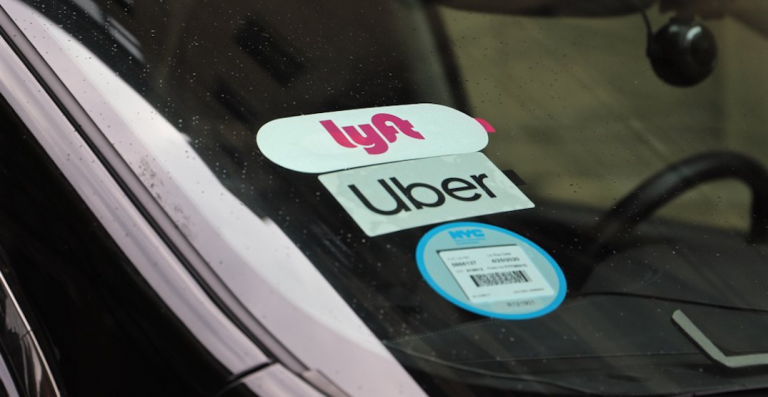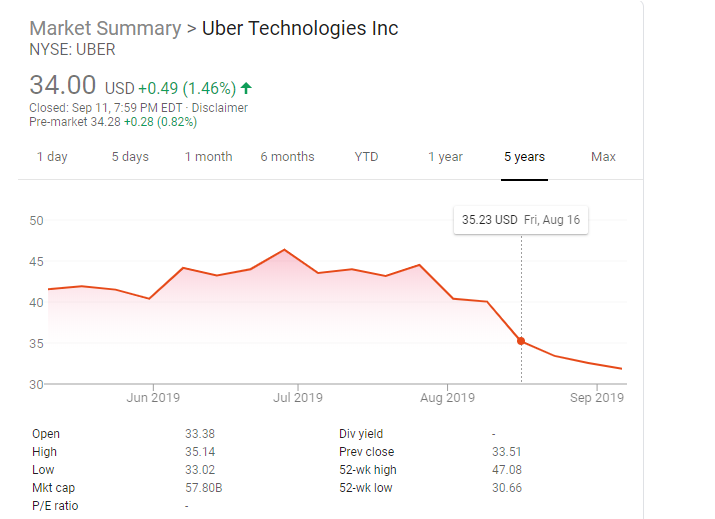
Uber is having crises – it is cutting more workers. Last time, it was marketing, but this new one includes engineering and product units. But yet, these cuts will not help Uber. Its fate is simple: Uber and Lyft will come together very soon. Yes, everyone will see that these companies are not making money and could be allowed to survive through merger; similar rivalries have ended together: Elance/Odesk (now UpWork), Groupon / LivingSocial, Sirius / XM and Rover / DogVacay.
For the second time in three months Uber is cutting staff in an effort to boost its bottom line.
The company confirmed on Tuesday that it has laid off 435 employees—265 from engineering and 170 from the product team. In July, the company cut 400 employees from its marketing department following the departure of Chief Operating Officer Barney Harford and Chief Marketing Officer Rebecca Messina.
“This is some bad news coming out of Uber as the company continues to go through some bumpy roads since its IPO,” said Dan Ives, analyst at Wedbush Securities. “This is not the news The Street wanted to hear, and it speaks to the challenges the company is contending with.”
Yet the real challenge is ahead for the gig economy which Uber is a guardian: California state senate passed a bill to classify workers doing things like driving for Uber and Lyft as full-blown employees, not independent contractors, thus blowing up the business model. The bill still has to be approved by the state assembly and signed by the governor, Fortune notes.
The California Senate passed a bill that could force Uber and other gig economy giants to reclassify their workers as employees. Such a change would secure labor protections for thousands of people across the state and deal a significant blow to companies that built multi-billion dollar businesses on independent contractors.
Under the new law, Assembly Bill 5, people in California could generally only be considered contractors if the work they’re doing is outside the usual course of a company’s business. Companies like Uber Technologies Inc. and Lyft Inc., which rely on armies of drivers to service their customers, would likely fail that test without transforming how they do business. Employees are entitled to a minimum wage and overtime pay, neither of which is a common protection within the gig economy.
By the time few other states follow California, Uber will call Lyft for a meeting; Lyft could also initiate the call.
Register for Tekedia Mini-MBA edition 18 (Sep 15 – Dec 6, 2025) today for early bird discounts. Do annual for access to Blucera.com.
Tekedia AI in Business Masterclass opens registrations.
Join Tekedia Capital Syndicate and co-invest in great global startups.
Register for Tekedia AI Lab: From Technical Design to Deployment.

---
Register for Tekedia Mini-MBA (Sep 15 – Dec 6, 2025), and join Prof Ndubuisi Ekekwe and our global faculty; click here.


We have spent plenty time in leadership and management studies hammering on Emotional Intelligence, Social Intelligence, Business Intelligence, and all other Intelligence out there, but we pay less attention to mother of them all: Political Intelligence!
I laugh when people underrate or detest politicians, you simply cannot dismiss them, your survival as entrepreneur or organisation largely depends on how they sleep and wake up; you must constantly keep them in check.
No leadership is greater than political leadership, as far as humans are concerned. All the investment in R & D or innovation can easily be wiped off, if you fail to upgrade your Political Intelligence.
Whether you play politics directly or indirectly, you cannot afford to keep your eyes off there, make sure you have your people in every key policy or legislative agenda.
Expect more dislocation in the gig economy, politicians see things differently.
“No leadership is greater than political leadership, as far as humans are concerned.” Uber is learning the hard way. If EU follows California, Uber will be done!